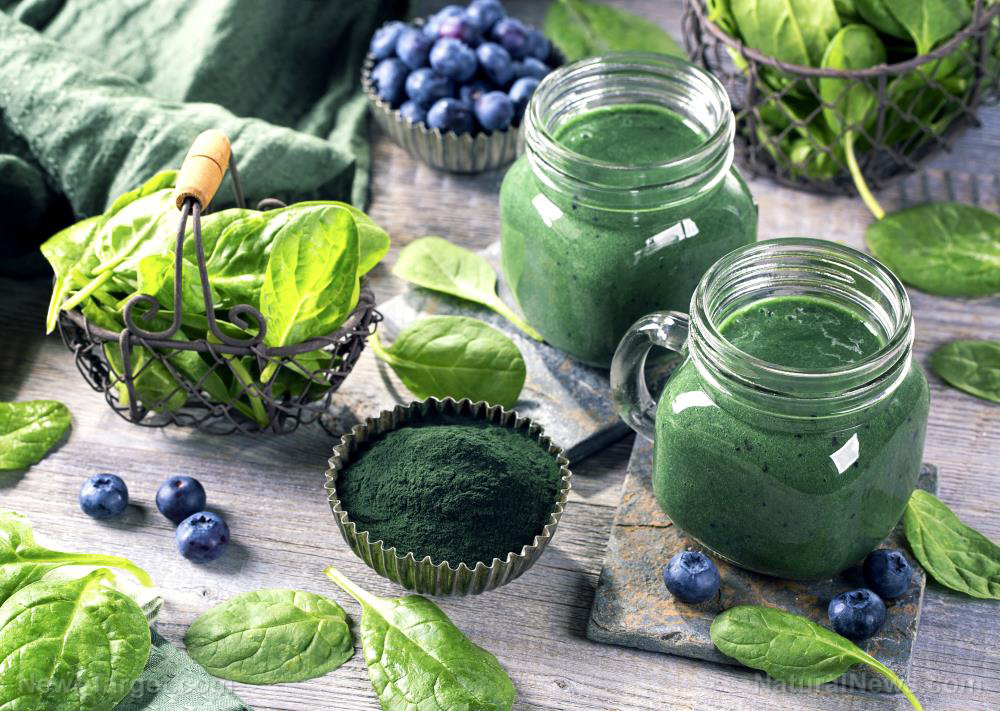Coffee contains powerful antioxidants that protect the brain and heart
04/17/2025 / By Lance D Johnson

Imagine starting your day with a steaming cup of coffee, not just for the rich, bold flavor and the energy boost, but also for the profound health benefits it offers. Beyond the caffeine kick, coffee is a powerhouse of antioxidants that play a crucial role in protecting your body from daily stressors. These natural defenders, including polyphenols and chlorogenic acids, work tirelessly to neutralize harmful free radicals, supporting everything from heart health to cognitive function. As we explore the science behind coffee’s antioxidants, you’ll discover how these compounds work and why they matter for your health.
Key points:
- Coffee is a rich source of antioxidants like polyphenols and chlorogenic acids, which help protect cells from oxidative stress.
- Chlorogenic acids can help regulate blood sugar levels by slowing the absorption of glucose in the intestines.
- Factors such as roast level, brewing method, and bean origin influence the antioxidant content of coffee.
- Drinking coffee can be a delicious way to support overall health while complementing a balanced lifestyle.
What do the antioxidants in coffee do?
Coffee antioxidants, particularly polyphenols and chlorogenic acids, are at the forefront of the beverage’s health benefits. These compounds help neutralize free radicals, which are unstable molecules that can cause damage to cells. By doing this, they support heart health, brain function, and metabolic processes. Studies suggest that chlorogenic acids may also support healthy blood vessel function, which is crucial for cardiovascular health. Additionally, polyphenols in coffee may influence gut health by supporting beneficial bacteria. Every time you sip your morning coffee, you’re not just getting an energy boost—you’re also giving your body a dose of protective compounds that support long-term health.
For instance, research has shown that chlorogenic acids, one of the primary antioxidants in coffee, can help regulate blood sugar levels, which is particularly beneficial for individuals with diabetes or those at risk. These acids work by slowing the absorption of glucose in the intestines, thereby preventing spikes in blood sugar levels. Moreover, polyphenols in coffee have been linked to improved cognitive function and a reduced risk of neurodegenerative diseases like Alzheimer’s and Parkinson’s. This is because these compounds help protect brain cells from oxidative stress, which is a key factor in the development of these conditions.
The science behind antioxidants
Antioxidants do more than just fight free radicals—they play a vital role in protecting your cells. Oxidative stress occurs when free radicals outnumber antioxidants in your body, leading to damage to cells, proteins, and even DNA. Over time, this can impact heart health, brain function, and other essential processes. Your body naturally produces antioxidants, but diet plays a significant role in maintaining balance. This is where coffee comes in, providing a rich source of antioxidants that can help neutralize free radicals and support cellular health.
The antioxidants in coffee, such as polyphenols and chlorogenic acids, work by donating electrons to free radicals, stabilizing them and minimizing potential damage. This process supports cellular health and plays a role in long-term wellness. Since coffee is a major source of antioxidants for many people, drinking it regularly may help strengthen your body’s defense system. For example, a study published in the Journal of Agricultural and Food Chemistry found that coffee consumption was associated with a reduced risk of liver disease, likely due to the high levels of antioxidants it provides.
Caffeine, while not as potent as coffee polyphenols, also contributes to the antioxidant activity in coffee. Research suggests that caffeine can help neutralize free radicals and support brain and heart health. It works alongside other antioxidants in coffee, enhancing their effects. So, when you drink your daily cup, you’re not just getting a caffeine boost—you’re also supporting cellular protection. A study in the European Journal of Nutrition highlighted that caffeine’s antioxidant properties may help reduce the risk of cardiovascular diseases by improving blood flow and reducing inflammation.
Which coffee has the highest antioxidant levels?
Not all coffee delivers the same amount of antioxidants. Factors like roast level, brewing method, and bean origin all influence how many antioxidants end up in your cup. Understanding these differences can help you choose the best coffee for antioxidant support.
Light vs. Dark Roast Roast level significantly affects the antioxidant content in coffee. Light roast coffee typically contains higher levels of coffee polyphenols and chlorogenic acids compared to dark roast. This is because prolonged roasting breaks down some of these compounds. While dark roasts still provide antioxidants, they tend to have lower concentrations of certain beneficial compounds. However, roasting also creates unique antioxidants, such as melanoidins, which form in darker roasts. These compounds may have their own health benefits, but research is still ongoing. If you want to maximize coffee polyphenols and chlorogenic acids, a light or medium roast may be the better option.
Best brewing methods for antioxidants
The way you brew coffee also impacts its antioxidant levels. Studies show that brewing methods with longer extraction times, such as French press and espresso, can yield higher concentrations of antioxidants. This is because the longer coffee grounds remain in contact with water, the more beneficial compounds are released. Cold brew is another great option to maximize your antioxidant intake because it preserves more chlorogenic acids than hot brewing, especially when using lighter roasts. On the other hand, instant coffee tends to have fewer antioxidants due to processing. To get the most out of your coffee antioxidants, opt for freshly brewed methods that allow for full extraction.
Coffee bean origins matter
Where coffee is grown also influences its antioxidant content. Beans from high-altitude regions often contain higher levels of antioxidants, as the harsher growing conditions encourage plants to produce more protective compounds. Countries known for antioxidant-rich coffee include Ethiopia, Colombia, and Kenya. Research comparing C. arabica from Australia, Colombia, Ethiopia, and Peru found that Colombian coffee had the highest total phenolic content (TPC) and the strongest antioxidant potential. The study identified 136 bioactive compounds, including chlorogenic acids, flavonoids, and quinic acid derivatives, which support cellular protection. Given these findings, Colombian coffee stands out as one of the most antioxidant-rich options available.
Soil composition and climate also play a role. Some regions naturally produce coffee with higher concentrations of polyphenols and chlorogenic acids. Choosing single-origin coffee from these areas may help you get the most antioxidants in every cup. For example, a study published in the Journal of Food Science found that coffee beans grown in volcanic soil, such as those from Hawaii, have higher levels of antioxidants due to the rich mineral content of the soil.
While your morning brew can support your body’s defense system, it’s just one piece of the puzzle. A balanced diet, regular exercise, and quality sleep all play a role in long-term health. So go ahead, enjoy that cup of antioxidant-rich coffee. And feel good knowing it has its place in your healthy lifestyle.
Sources include:
Submit a correction >>
Tagged Under:
antioxidants, blood sugar control, brain function, brewing methods, cellular protection, chlorogenic acids, coffee, columbian coffee, dark roast, heart health, herbal medicine, natural medicine, organic farming, oxidative stress, polyphenols, wellness
This article may contain statements that reflect the opinion of the author
RECENT NEWS & ARTICLES
COPYRIGHT © 2017 SCIENTIFIC NEWS




















